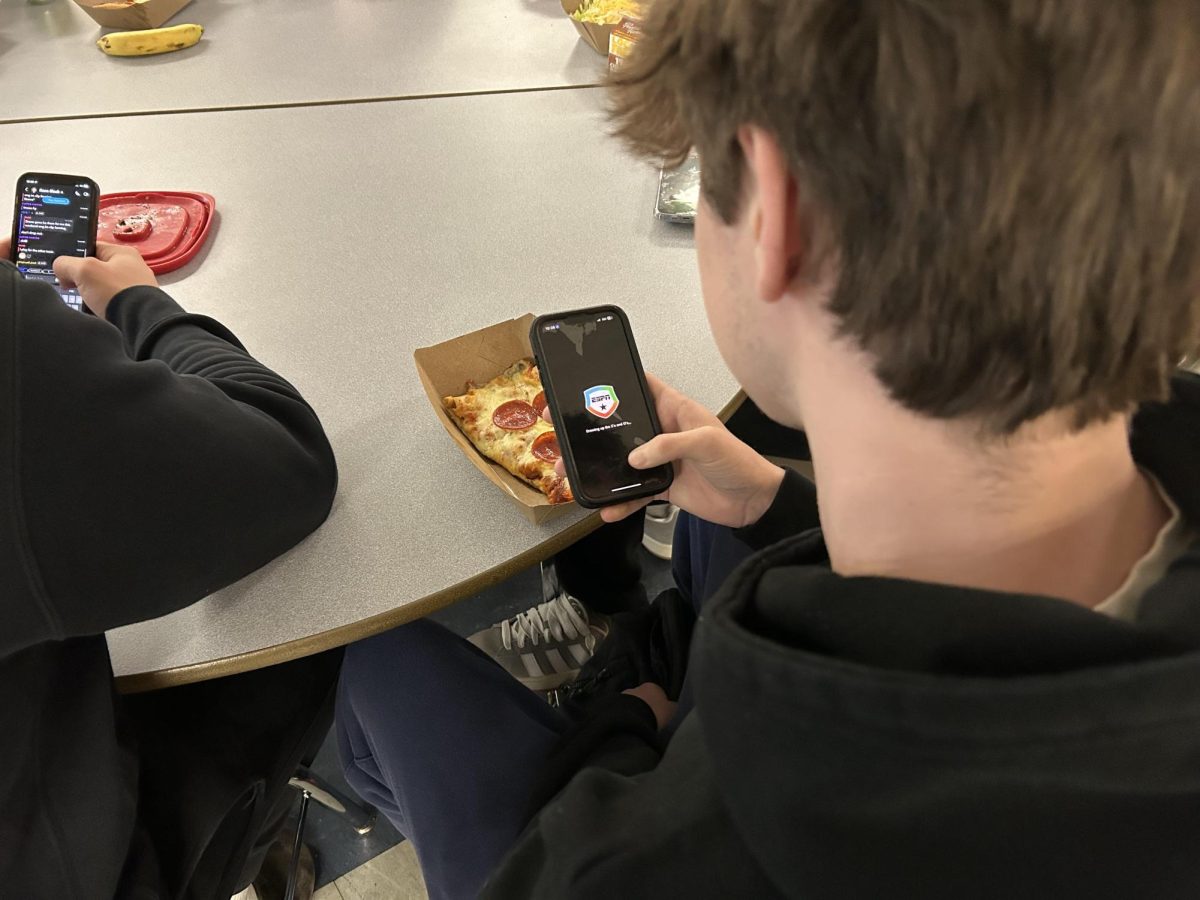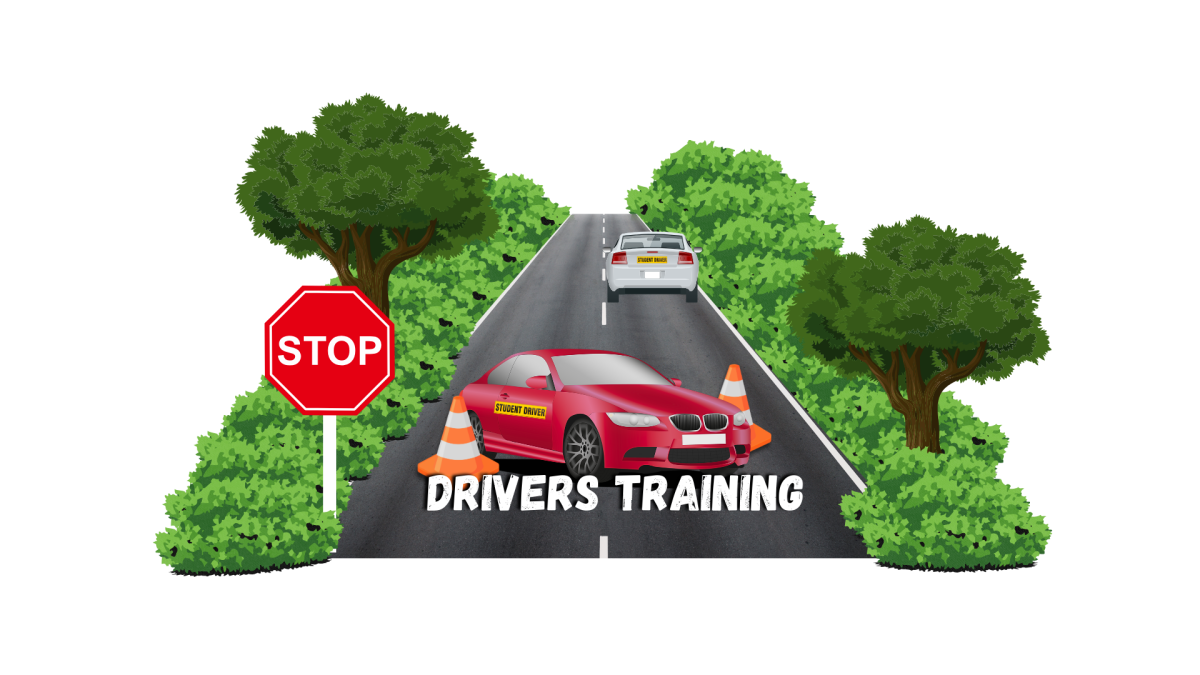
I am from Madrid, Spain, where I attend Joaquin Araujo High School. This year I am studying in the United States at Loy Norrix High School. Being a foreign exchange student has given me the chance to analyze and understand things through a different perspective; education is one of those things.
The American public education system is seen by Europeans as one of the best in the world because of the great variety of extra-curricular activities, its inclusiveness and because its curriculum is often much wider and varied. However, after two months of studying at Loy Norrix, I’ve realized that Americans aren’t so enthusiastic about their own education system.
Quite often students complain about the amount of homework that they receive, the standardized tests, the dress code and even about the bathroom rules. These are things that high schools could improve, but if you were to ask me, these aren’t the problems Americans should be most concerned about.
Education in America does a great job in teaching teenagers all the academic stuff they need to know to graduate, but it sometimes fails in preparing teenagers for real life. In Europe we have the belief that schools are a reflection of society, so it was a big surprise for me to hear that students in America don’t often receive good information at school on topics such as the principles of ethics or moral values like the value of effort or respecting others. Sometimes they don’t even receive sex education, or information about other relevant issues in the life of adolescents.
Most high schools in Europe have daily tutoring and mediation programs which help students learn how to live in society and interact with people. Being tolerant and knowing how to solve problems might sound pretty easy and something that we all should already know, but I’ve been here for a couple months and I’ve already seen more fights at Norrix than in my whole life back in Spain, so it would be a good idea to teach students skills to solve conflicts peacefully and ideas such as respect and tolerance.
For instance, whenever there was a fight at my high school back in Spain, the kids involved in the fight would have to spend one hour after school for a whole month to discuss the problem they had with counselors and other students. The other students are normally people who have had similar arguments before and can give advice. The idea is giving students enough resources to learn how to work out their differences and solve the problem.
“Mediation in our high school has helped students a lot,” said Pedro Jose Mena, one of the mediators at Joaquin Araujo High Schools in Madrid. “We, mediators, teach them how to talk out their problems. First, they normally shout to each other and say horrible things, but we let them because after all the shouting students always realize that it’s pointless so they learn to listen each other and to express themselves in a different way. They end up reaching an agreement by their own and it’s funny because there are a lot of kids that become great friends after mediation.”
As for more controversial topics, such as sex or drug education programs, those are necessary too. There is a health class here at Norrix which can be really useful. Sex is a natural part of life and students need to learn to be safe and avoid teen pregnancy. Students should also have the opportunity to learn how to feel comfortable and confident in certain situations and have better access to information to help students understand their sexual-orientation and gender-identity. It’s also fundamental to teach this through a feminist perspective that makes teenagers understand the importance of having your partner’s consent which could avoid future cases of sexual harassment.
It’s time to change the way in which schools teach this topic. It’s not enough to talk about safety and health because sex is more than just physical, and sexuality is more than just our bodies.
Teenagers should have enough resources to deal with situations which can be difficult for them sometimes, sex education is just an example but it can also apply to drugs or alcohol.
Moreover, one of the things I like the most from these tutoring classes in Spain is all the information we receive about social issues. Since we were children, we learned in class to respect every individual regardless of the social class, race, sexuality or gender. All the feminist, anti-racist or LGTB+ workshops are extremely useful. It’s essential for teenagers to be aware of the social injustices and learn the importance of speaking out for what they believe.
“I think that these are ages in which people begin to develop racist and discriminatory beliefs and it’s very important to raise awareness of diversity, equality and inclusion now,” said Tatiana Ndombasi, responsible for the afro-feminist workshop at Joaquin Araujo High School in Madrid.
However, many people disagree with the idea of teaching teenagers anything else than math or literature. They claim that teenagers will learn about these other topics through life experience, but there is a world for us to discover beyond mathematics and schools should also teach us how to navigate it. Students should learn to be creative, tolerant, fair, curious and, among other things, schools should help each student grow and mature as a person.
As the American philosopher, psychologist and educational reformer John Dewey rightly said, “Education is not preparation for life; education is life itself.” We need to take into account that the ideas and values that students learn now will be the values and ideas of the future American society. Education is the base of the shaping and development of a respectful and humanitarian world.
Categories:
Education Should be a Mirror of Society
December 9, 2018
2
More to Discover







